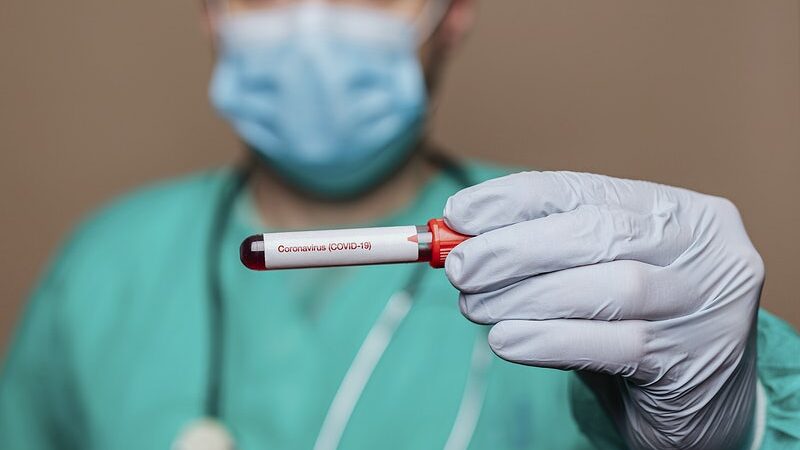They left the NHS unprepared for a pandemic we knew was coming.

The official UK coronavirus death-toll has reached 42,000, but the worst may not be over.
The reproduction number for England is now above one, indicating that the virus is spreading. Healthcare workers, as well as ordinary people are finding it difficult to secure timely virus tests. Winter is not far away and many experts expect a spike in the number of reported cases.
Another lockdown would be very damaging to the economy and accelerate job losses. All this, after the UK spent billions of pounds to tackle coronavirus. Why does the country find itself in such a predicament?
The economic damage has been done not just by coronavirus, but also by bad government policies. Since 2010, the proportion of gross domestic product (GDP) going to the NHS has declined as the government prioritised cuts in taxes for corporations and the rich. This appeased corporate elites and stock markets, but weakened the NHS’s ability to manage emergencies.
In 2016, the government-backed Exercise Cygnus showed that the NHS would struggle to handle a flu-like pandemic. It concluded: “The UK’s preparedness and response, in terms of its plans, policies and capability, is currently not sufficient to cope with the extreme demands of a severe pandemic”. The government responded by depleting stockpiles of protective personal equipment (PPE) by almost 40% over the past six years.
The funding cuts meant that that NHS was not in a position to handle the crisis. The hurried provision of Nightingale hospitals provided some additional beds, but did not form part of any long-term healthcare or pandemic management strategy. Indeed, many received few or no patients and were shut-down.
In the absence of co-ordinated purchasing, the government awarded numerous PPE contracts to companies which had little/no experience of procuring such equipment. Many domestic suppliers were ignored in favour of foreign suppliers. Unsurprisingly, a lot of money was wasted on PPE which did not meet the required standards.
Due to cuts, hospital laboratories were not in a position to provide additional virus tests. Local family doctors, general practitioners (GPs) already administer flu-jabs and could have been supported to become hubs for coronavirus testing, but the government did not do so.
Rather than building the NHS testing capacity, the government stuck to its ideological commitment of outsourcing public services. It awarded contracts to businesses such as Deloitte, KPMG, Serco, G4S and others to rapidly provide test centres even they had little/no experience of administering tests or medicines.
Many of the temporary test centres were staffed by science students during their summer break. Now students are returning to universities and the provision of tests is patchy. Many people have to travel long distances to get a test.
Even if tests are available, the UK does not have the lab capacity and thousands of swabs are being sent to Germany, Italy and elsewhere for processing, adding to the delay in diagnosing the virus. The government had time to train new staff and provide long-term capacity, but did not do so.
The Tory economic policies have further added to the crisis. For example, the subsidy for the furloughed staff was fixed at 80% of the employee wage. There was no minimum level of support. This meant that millions of people on the national minimum wage, £8.72 an hour for the over-25s, only received a fraction of their wage. The House of Commons Treasury Committee reported due to poor government policies, millions of employees and self-employed have not received any financial help
Due to a decade of government-backed austerity and wage freezes, people had little financial reserves to fall-back on. Some 12.8 million households have either no, or less than £1,500, in savings. The financial support for furloughed staff is being phased out and is due to end in October. People isolating themselves are entitled to statutory sick pay (SSP) of £95 per week, which is utterly inadequate.
Low wages, derisory SSP, depleted savings and the absence of a minimum level of financial support means that many infected individuals would prefer to work, if they can, rather than risk not having enough to pay for rent, food and other essentials. The lack of financial support has increased the possibility of spreading the virus.
As we head into winter, the cases of coronavirus are expected to spike. Even if a vaccine is found, it will take a long time to administer. Meanwhile, there is still lack of test, trace and other facilities.
The coronavirus crisis has been aided and incubated by government policies prioritising cuts to public services, fragmentation of the NHS, obsession with privatisation and outsourcing; wage freezes and tax cuts for corporations and the rich. There has been virtually no long-term planning and little focus on building any systemic resilience.
The disarray does not bode well for the future. In the not too distant future, global warming and climate change would unleash new challenges. None of these can be met by laissez-faire economic policies or tax cuts for the rich. They require investment in public services and equitable distribution of income and wealth, the very things that the government has neglected.
Prem Sikka is Professor of Accounting at University of Sheffield and Emeritus Professor of Accounting at University of Essex. He is a Contributing Editor to LFF and tweets here.
Left Foot Forward doesn't have the backing of big business or billionaires. We rely on the kind and generous support of ordinary people like you.
You can support hard-hitting journalism that holds the right to account, provides a forum for debate among progressives, and covers the stories the rest of the media ignore. Donate today.



